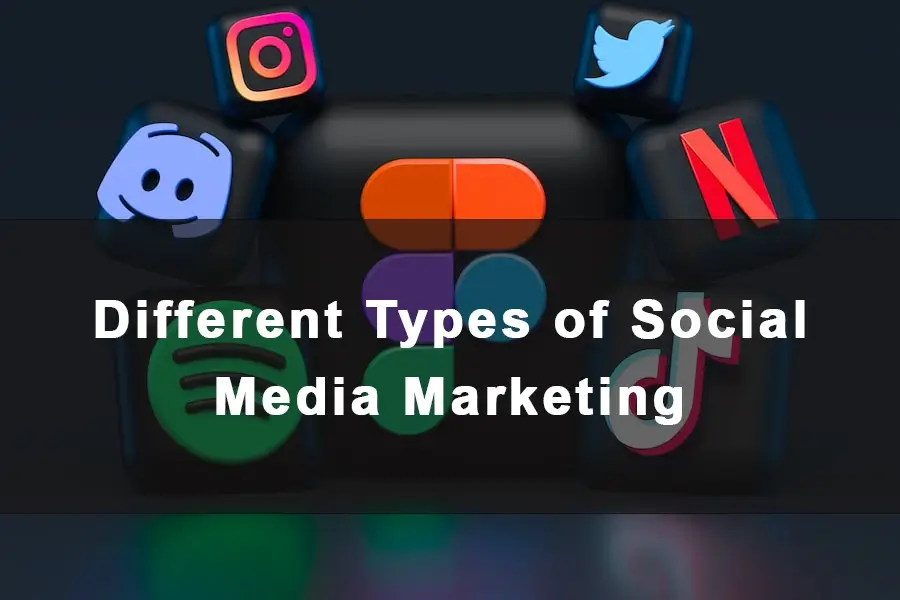
Different Types of Social Media Marketing
In today's digital age, social media has become an integral part of our lives, revolutionizing the way businesses interact with their target audience. There are several types of social media marketing that enable businesses to effectively engage, promote, and build relationships on various platforms. In this article, we will delve into the different types of social media marketing strategies, making you familiar with their unique benefits and applications.
1. Content Marketing
Content marketing in social media refers to the practice of using social media platforms to create and share valuable content with the goal of engaging and attracting a target audience. Content formats can include blog posts, articles, videos, infographics, podcasts, and more. By consistently delivering valuable content, businesses can establish themselves as trusted authorities, strengthen brand awareness, and foster meaningful connections with their audience. This strategy aims to provide value (education, inspiration, entertainment) to the audience, to ultimately encourage profitable customer action.
2. Influencer Marketing
Influencers are individuals who have established a strong online presence, often on social media platforms, and have the ability to sway the opinions, behaviors, and purchasing decisions of their followers. Influencer marketing is a type of marketing strategy that involves collaborating and partnering with influencers, to promote a brand, product, or service to their dedicated audience. Influencer marketing can be executed through sponsored posts, endorsements, product reviews, or influencer takeovers.
3. Social Media Advertising
Social media advertising involves running paid advertisements on platforms like Facebook, Instagram, Twitter, LinkedIn, and YouTube. These platforms allow businesses to narrow down their ad audience by defining their target audience based on age, gender, location, and language, as well as interests, hobbies, and even (in LinkedIn) specific job titles or industries. This targeted approach helps optimize ad spend and increases the chances of reaching users who are more likely to take the desired action, such as making a purchase, signing up for a newsletter, or visiting a website. Social media ads can take the form of image ads, video ads, carousel ads, or sponsored content.
4. User-Generated Content (UGC) Campaigns
UGC campaigns involve encouraging users to create and share content related to the brand or its products/services. UGC campaigns can include contests, challenges, hashtags, or simply encouraging users to share their experiences through testimonials or reviews. Why is UGC so recommended?
- It allows customers to become brand advocates by voluntarily promoting the brand.
- It is often seen as more authentic and trustworthy compared to branded content because it comes from real customers.
- It develops a sense of community and engagement around a brand.
- It can help reduce content creation costs while providing a diverse range of contentfrom different perspectives and experiences.
5. Social Media Listening and Monitoring
Social media listening and monitoring involve tracking and analyzing conversations, mentions, and sentiments on social media platforms. It involves actively monitoring social media channels to gain insights into what people are saying about a brand, product, service, or industry. By actively monitoring social media, businesses can understand customer sentiment, identify trends, address customer concerns, and improve their products or services.
6. Social Media Customer Service
Social Media Customer Service refers to the practice of providing customer support and assistance through social media platforms. It involves providing timely and personalized support by responding to customer inquiries, concerns, or complaints through direct messages or public comments. Social media customer service showcases a brand's commitment to customer satisfaction, which can build customer trust, and maintain a positive brand image.
7. Social Media Live Streaming
Live streaming on platforms like Facebook Live, Instagram Live, or YouTube Live allows businesses to connect with their audience in real-time. Live streaming can be utilized for product launches, webinars, Q&A sessions, or live events. This interactive strategy establishes genuine engagement, builds trust, and creates a sense of exclusivity.
8. Social Media Influencer Affiliates
In this strategy, influencers earn a commission or incentive for promoting products or services through their social media channels. This arrangement benefits both the influencers and the brands they promote. It helps the brands reach a larger audience, boosts sales, and makes their marketing more effective overall.
9. Social Media Remarketing
Social media remarketing is a strategy that focuses on reaching out to users who have already engaged with a brand or visited its website. Remarketing campaigns serve as reminders to potential customers about products or services they previously showed interest in. The goal is to reconnect with these individuals by showing them personalized advertisements on social media platforms to reignite their interest and encourage them to become customers. This helps reinforce brand recognition and ultimately leads to more conversions.
10. Social Media Contests
Social media contests involve inviting users to participate in a competition on social media platforms. Participants are typically required to follow specific rules, such as liking, sharing, or commenting on a post, or submitting user-generated content to win a prize. This strategy encourages user participation, boosts brand awareness, and can helps in building a loyal and engaged community.
Conclusion
Social media marketing provides a wide range of strategies to help businesses succeed in the online world. These strategies help businesses to effectively connect with their intended audience, establish brand recognition, and generate conversions. Consider incorporating these diverse strategies into your social media marketing efforts to unlock the full potential of social media for your business's success.